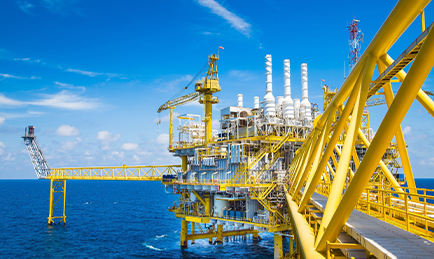- Afrikaans
- Albanian
- Amharic
- Arabic
- Armenian
- Azerbaijani
- Basque
- Belarusian
- Bengali
- Bosnian
- Bulgarian
- Catalan
- Cebuano
- Corsican
- Croatian
- Czech
- Danish
- Dutch
- English
- Esperanto
- Estonian
- Finnish
- French
- Frisian
- Galician
- Georgian
- German
- Greek
- Gujarati
- Haitian Creole
- hausa
- hawaiian
- Hebrew
- Hindi
- Miao
- Hungarian
- Icelandic
- igbo
- Indonesian
- irish
- Italian
- Japanese
- Javanese
- Kannada
- kazakh
- Khmer
- Rwandese
- Korean
- Kurdish
- Kyrgyz
- Lao
- Latin
- Latvian
- Lithuanian
- Luxembourgish
- Macedonian
- Malgashi
- Malay
- Malayalam
- Maltese
- Maori
- Marathi
- Mongolian
- Myanmar
- Nepali
- Norwegian
- Norwegian
- Occitan
- Pashto
- Persian
- Polish
- Portuguese
- Punjabi
- Romanian
- Russian
- Samoan
- Scottish Gaelic
- Serbian
- Sesotho
- Shona
- Sindhi
- Sinhala
- Slovak
- Slovenian
- Somali
- Spanish
- Sundanese
- Swahili
- Swedish
- Tagalog
- Tajik
- Tamil
- Tatar
- Telugu
- Thai
- Turkish
- Turkmen
- Ukrainian
- Urdu
- Uighur
- Uzbek
- Vietnamese
- Welsh
- Bantu
- Yiddish
- Yoruba
- Zulu
Innovative Technology for Modern Pipe Mill Production and Efficiency Improvements
The Pipe Mill A Crucial Element in Modern Industry
In the realm of manufacturing and construction, the pipe mill stands as a pivotal facility, responsible for the production of steel pipes that serve a myriad of functions across various industries. This remarkable establishment operates at the intersection of technology, engineering, and raw materials, transforming the fundamental elements of steel into essential components used in infrastructure development, oil and gas transportation, water supply systems, and even advanced engineering applications.
Understanding the Pipe Mill
At its core, a pipe mill is designed to produce pipes of various diameters and wall thicknesses through a series of manufacturing processes. The journey of steel from raw material to finished pipe typically begins with steel coils, which are then subjected to processes such as forming, welding, and finishing. Various techniques are utilized depending on the required specifications and applications of the pipes, including Electric Resistance Welding (ERW), Spiral Weld, and Seamless pipe production.
The pipe manufacturing process starts with the flattening of a steel coil. The flat metal strips are then shaped into a tubular form. In the case of ERW pipes, edges of the strip are heated and welded together, forming a strong joint. Spiral welding involves winding a steel strip in a spiral fashion, which is then welded as it goes. On the other hand, seamless pipes are produced by piercing a solid steel billet, which is then elongated and shaped into a pipe. Each method has its specific applications, advantages, and disadvantages, influencing their use in different industries.
Applications of Pipe Mill Products
The range of applications for pipes produced in a pipe mill is extensive. In the oil and gas industry, high-strength steel pipes are crucial for transporting hydrocarbons over long distances. The structural integrity of these pipes is paramount; therefore, they are manufactured to meet stringent industry standards to withstand extreme pressure and corrosion.
pipe mill

In the realm of construction, pipe mills supply structural pipes that form the backbone of various buildings and frameworks. These pipes are used in scaffolding, plumbing systems, and even in the construction of bridges and roads. Additionally, the water supply system relies heavily on the consistent and reliable production of pipes, which are essential for transporting potable water and wastewater.
Another critical application lies in the manufacturing of pipes for nuclear and power generation facilities. Here, the specifications become even more stringent, as the pipes must endure high temperatures and pressures while ensuring safety and reliability.
Innovations in Pipe Manufacturing
As industries continue to evolve, so does the technology employed in pipe mills. Automation and advanced manufacturing techniques have significantly increased efficiency and precision in the production process. Modern pipe mills are equipped with state-of-the-art machinery capable of monitoring and controlling various parameters during production, ensuring a high standard of quality is maintained.
Moreover, there is a growing emphasis on sustainability within the industry. Innovations aimed at reducing waste, recycling materials, and improving energy efficiency are becoming more commonplace. Many pipe mills are exploring the use of alternative materials and production methods that align with environmental standards and regulatory requirements.
Conclusion
The importance of pipe mills in today’s industrial landscape cannot be overstated. They play a vital role in providing the essential pipes that support our infrastructure, energy needs, and construction projects. As technology advances and the demand for high-quality, durable pipes grows, pipe mills must adapt and innovate to meet these challenges. With a focus on quality, efficiency, and sustainability, the future of pipe manufacturing appears promising, ensuring that these crucial components will continue to support the global economy for years to come. The pipe mill, often overlooked, is indeed a cornerstone of modern manufacturing and construction.
-
Tubing Pup Joints: Essential Components for Oil and Gas OperationsNewsJul.10,2025
-
Pup Joints: Essential Components for Reliable Drilling OperationsNewsJul.10,2025
-
Pipe Couplings: Connecting Your World EfficientlyNewsJul.10,2025
-
Mastering Oilfield Operations with Quality Tubing and CasingNewsJul.10,2025
-
High-Quality Casing Couplings for Every NeedNewsJul.10,2025
-
Boost Your Drilling Efficiency with Premium Crossover Tools & Seating NipplesNewsJul.10,2025







